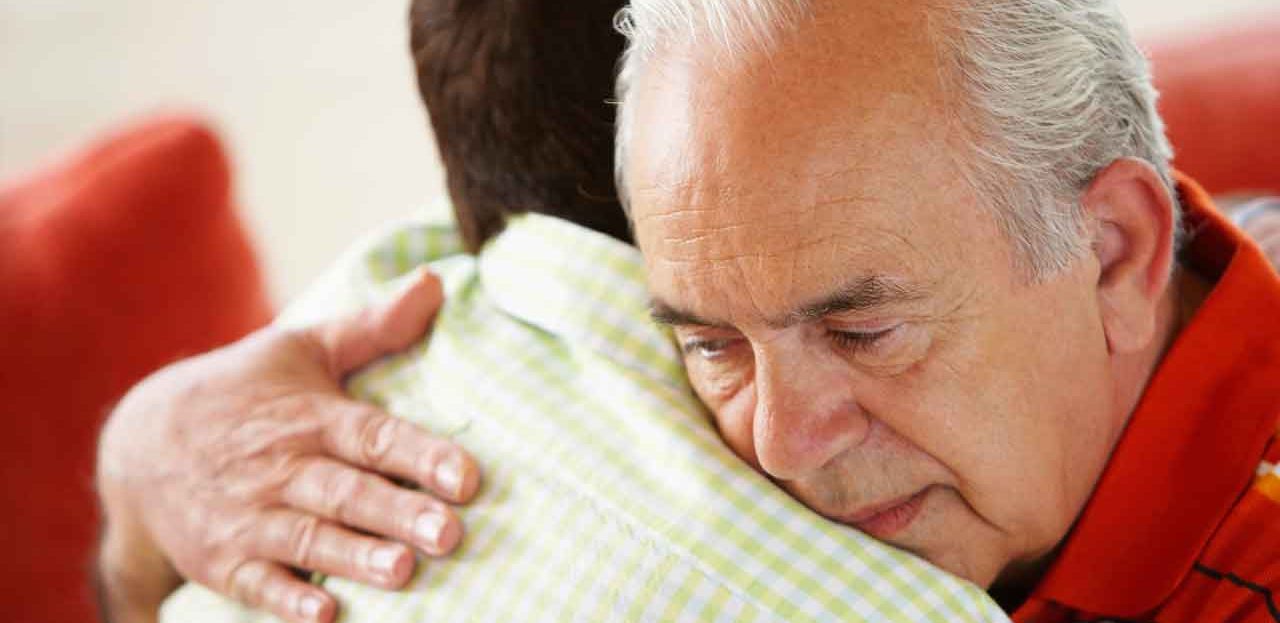Caregivers Need to Take Care of Themselves

We need to find ways to disengage temporarily and recharge ourselves.
Caregiving is tricky because it’s easy to burn yourself out taking care of someone else.
Reggie Gooch took care of his wife of 76 years, Millie, everyday around the clock after she was diagnosed with Alzheimer’s disease.
YOU MIGHT ALSO LIKE: Caring for a Person with Alzheimer’s
His deep love for her kept him going. But after years of emotional and physical demands, “I don’t think I could have gone on much longer,” Gooch told ABC News.
Even at 98, Gooch arose every morning to have breakfast ready for Millie at 4:30 a.m. and stayed with her all day until 10 p.m. His own social life and activities ground to a halt.
He didn’t realize it, but Gooch was suffering from compassion fatigue, a term used to describe a form of post-traumatic stress disorder caused by caring for others.
“You take on the pain of others and suffer, all bottled up, angry and suppressing feelings,” Patricia Smith, co-founder of the Compassion Fatigue Awareness Project, told ABC News. “Your impulse is to rescue. You don’t have any personal boundaries, but you become isolated and lose your self-care in the process.”
More than 65 million Americans are providing care for someone who is chronically ill or disabled and spend an average of 20 hours a week looking after a loved one, according to the National Alliance for Caregiving in collaboration with AARP.
That’s a lot of self-inflicted pain when you focus on others without caring for yourself. A long list of debilitating symptoms can follow.
Described as a kind of “soul sadness” by Colleen Breen, the author of “Making Changes: A Guidebook for Managing Life's Challenges,” an inner, core reality closes down when people “become so overwhelmed by the needs and concerns of others that they forget to take care of themselves,” says the Hazeldon Betty Ford Foundation.
Breen says that during more than 25 years as a licensed social worker and psychotherapist in Minneapolis and St. Paul she has worked with thousands of caregivers who have overtaxed themselves to the point of “caregiving shutdown.”
YOU MIGHT ALSO LIKE: Making Caregiving Decisions and Answering Questions
They often become withdrawn and joyless, irritable, depressed, uninterested in intimacy and sex, and feel like they're "just going through the motions" of their lives with no sense of purpose or meaning, she says. They might also turn to what Breen calls "negative coping skills," like smoking, drinking, drug use, or other addictive behaviors.
She says caregivers should adopt some kind of physical regimen to deal with what happens to their mind and body, and take care of their inner selves with quiet time that enables solitude and contemplation.
Hobbies, engaging in the arts, and listening to music are some good examples of ways to tend your soul, Breen says.
Since compassion fatigue has all the hallmarks of addiction, many tenets of a 12-step program apply, especially reaching out to others for regular help and support. It’s equally important that you express your concern to someone you care about when you see the symptoms of compassion fatigue engulfing them.
“There is a lot to take in. Giving oneself permission to take a break for a short time and taking care of oneself, may not only help the caregiver but may also provide a role model of self-care for the patient,” says a Psychology Today report.
Taking a break might be just stopping and “feeling one’s body,” asking the (person being cared for) to slow down, taking a deep breath, or making a small movement. Those are forms of regulating the nervous system and decreasing the stress of working with traumatized (people), the report adds.
"There is this myth that we have unlimited energy; but we are not Energizer Bunnies," says Breen. "We can't just keep going and going and going, giving and giving and giving. Self-care is a way to charge our inner batteries so we can continue caring for others."
Resources
- Caregiver.com
- The Caregiver Initiative
- Family Caregiver Alliance
- National Alliance for Caregiving
- Caregiver Action Network
- Well Spouse Association
- ARCH National Respite Network and Resource Center
YOU MIGHT ALSO LIKE: Caregiving Options Vary But All Have Their Merits
Updated:
April 07, 2020
Reviewed By:
Janet O’Dell, RN